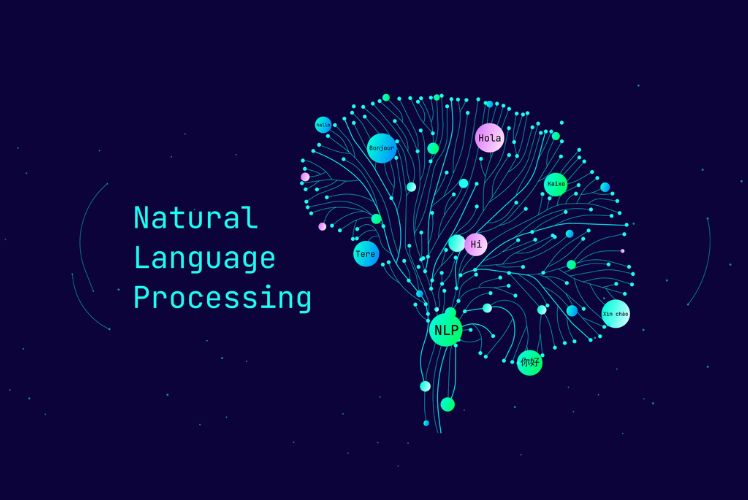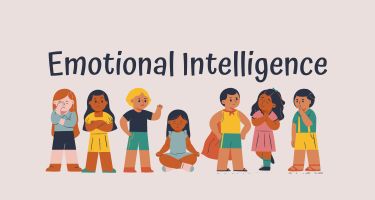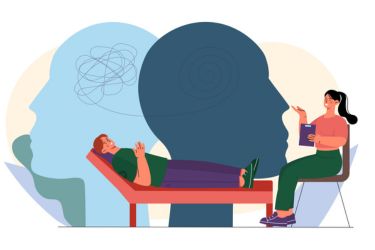NLP, or Neuro-Linguistic Programming, offers valuable tools that can enhance our daily lives. By understanding the connection between our thoughts, language, and behaviour, we can unlock new ways to improve our communication and personal development. Whether we are looking to build better relationships, advance in our careers, or simply manage our thoughts more effectively, NLP provides practical strategies to help us achieve our goals.

Many of us may not realise how often we encounter NLP in action. From the way we handle conversations to the methods we use for self-motivation, the principles of NLP are woven into various aspects of our lives. Exploring these ideas can empower us to make more conscious choices and foster positive change both personally and professionally.
As we delve into the various ways NLP can assist us, we will discover techniques that are both accessible and impactful. We can apply these insights to enhance our interactions with others, improve our mindset, and navigate challenges more effectively.
Key Takeaways
- NLP helps us understand the link between our thoughts and actions.
- We can use NLP techniques to improve communication in personal and professional settings.
- Practical applications of NLP can lead to greater personal development and success.
Understanding NLP

NLP, or Natural Language Processing, is a vital branch of technology that focuses on how computers interact with human language. It has roots in various disciplines, including linguistics and artificial intelligence. In this section, we will explore its historical context, key pioneers, and the principles and methodologies that define it.
Historical Context
The journey of NLP began in the 1950s with early attempts to make computers understand human language. Initial efforts were rudimentary and focused on simple tasks like translation. As technology progressed, researchers started exploring more complex ideas.
In the 1980s and 1990s, the field expanded with advances in machine learning and computational linguistics. This led to better algorithms and models for understanding and generating human language. Notably, the advent of the internet provided vast amounts of data that researchers could use to train their models effectively. Today, NLP plays a crucial role in various applications, such as chatbots, search engines, and sentiment analysis.
Key Pioneers
Several influential figures have shaped the development of NLP. Richard Bandler and John Grinder, founders of Neuro-Linguistic Programming, have contributed insights on how language affects communication. Their work examined the relationship between language and behaviour and how it can be optimised.
Virginia Satir, a family therapist, emphasised communication's role in effective relationships. Milton Erickson, a psychiatrist, brought innovative ideas in using language for therapeutic purposes. Additionally, Fritz Perls, the founder of Gestalt therapy, focused on self-awareness and the importance of dialogue. Together, these pioneers laid essential groundwork for understanding language's psychological and practical aspects.
Principles and Methodologies
NLP involves various principles and methodologies that dictate how language is processed. At its core, NLP combines statistics, linguistics, and machine learning. Key techniques include tokenisation, which breaks text into smaller units, and parsing, which analyses the grammatical structure.
Machine learning models, such as neural networks, are used to make predictions based on input data. We also employ sentiment analysis to identify emotions conveyed in text. Another crucial aspect is the use of algorithms to filter and classify large amounts of data efficiently. These principles and methods help us create systems that can interpret, generate, and respond to human language, enriching our daily interactions with technology.
NLP in Personal Development

Neuro-Linguistic Programming (NLP) offers practical tools for personal development. We can apply these techniques to improve various aspects of our lives, including self-esteem, anxiety management, communication, and belief transformation.
Building Self-Esteem
Building self-esteem is crucial for our personal growth. NLP techniques help us reframe negative thoughts and create a more positive self-image. Through simple exercises, we can identify and challenge limiting beliefs about ourselves.
For example, we can use positive affirmations to shift our mindset. By repeating statements like “I am capable” or “I deserve success,” we begin to internalise these beliefs. Visualisation techniques can further reinforce this change, allowing us to see ourselves succeeding in various scenarios.
Overcoming Anxiety and Stress
NLP provides powerful strategies for managing anxiety and stress. One effective method is the use of anchoring, where we associate a physical gesture or touch with a calming feeling. Over time, this action can help us evoke relaxation in stressful situations.
Breathing exercises and guided imagery are also part of NLP practices. We can create mental images of peaceful places to reduce stress. These methods empower us to regain control over our thoughts and feelings when faced with anxiety-provoking situations.
Enhancing Communication Skills
Effective communication is vital for success in our personal and professional lives. NLP helps us understand and improve our communication styles. By learning to read non-verbal cues, we can better connect with others.
Practising active listening is another essential skill. This means not only hearing words but also understanding the feelings behind them. By being present in conversations, we foster deeper relationships and improve our ability to express our own thoughts clearly.
Transforming Limiting Beliefs
Limiting beliefs can hold us back from achieving our goals. NLP helps us identify these beliefs and provides techniques to change them. For instance, we can use timeline therapy, which allows us to process past experiences and reframe our perceptions.
Through this technique, we can replace negative beliefs with empowering ones. Instead of thinking, “I can’t do this,” we learn to say, “I can learn to do this.” This shift can significantly improve our performance and lead to greater success in various areas of our lives.
By engaging with these NLP techniques, we can enhance our personal development journey and unlock our potential.
NLP in the Workplace

In the workplace, NLP provides various tools and techniques that enhance communication, teamwork, and performance. We can apply these techniques across different areas, such as human resources, sales, leadership, and customer service.
HR and Recruitment
In HR and recruitment, NLP can transform how we assess candidates. By using specific questioning techniques, we can uncover deeper insights into a candidate's mindset and values. This leads to better hiring decisions.
NLP helps in creating a rapport during interviews. By mirroring body language, we can make candidates feel more comfortable. This results in more honest and open conversations.
Additionally, we can use NLP techniques to align new employees with the company culture. Tailoring onboarding processes increases engagement and retention, ultimately improving performance and reducing turnover.
Sales and Negotiation
In sales, we can apply NLP to understand our customers' needs more deeply. By analysing language patterns, we recognise the emotional triggers that drive purchasing decisions. This insight allows us to tailor our pitches effectively.
We can improve our negotiation skills through NLP as well. Techniques like reframing objections help shift perceptions. By addressing concerns positively, we can find common ground more quickly, leading to successful outcomes.
Building rapport with clients also plays a crucial role in sales. Using NLP strategies, such as matching communication styles, strengthens relationships and boosts customer loyalty.
Leadership and Team Building
NLP enhances our leadership capabilities by improving our communication skills. By understanding how different people process information, we adapt our messages to suit various team members. This adaptability fosters better collaboration and teamwork.
Through NLP, we can identify and change limiting beliefs within our teams. Encouraging a growth mindset empowers everyone to embrace challenges and seek new opportunities. This shift leads to improved team performance and morale.
As leaders, we also benefit from active listening. By focusing on our team's needs and concerns, we create an environment where everyone feels valued. This promotes transparency and encourages open dialogue.
Customer Service Excellence
In customer service, employing NLP techniques can significantly enhance customer satisfaction. By actively listening and using empathetic language, we make customers feel heard and understood. This approach builds stronger relationships and fosters loyalty.
We can also use NLP to identify customer pain points effectively. By recognising specific language cues, we tailor our responses to address their concerns directly. This targeted communication improves the overall customer experience.
Training our staff in NLP techniques equips them to handle difficult situations. By implementing strategies to manage emotions, our team can remain calm and professional, even under pressure. This contributes to a more positive service environment.
NLP Techniques and Training

NLP offers practical tools that can transform our daily lives by helping us understand our thoughts and behaviours. By focusing on modelling excellence, goal setting, and eradicating bad habits, we can create significant changes in how we operate.
Modelling Excellence
One powerful NLP technique is modelling excellence. This involves observing and emulating the behaviours and thought patterns of successful individuals.
We can identify what makes them effective and adapt those traits into our own lives.
Steps to Model Excellence:
- Choose a Role Model: Identify someone who excels in a field we aspire to.
- Observe: Pay attention to their language, actions, and strategies.
- Copy: Gradually incorporate these aspects into our daily routines.
By modelling excellence, we can reshape our beliefs and behaviours, leading to better decision-making and results.
Goal Setting and Motivation
Using NLP for goal setting can help clarify our desires and enhance motivation. When we set specific, achievable goals, we create a clear path forward.
Effective Goal Setting Techniques:
- SMART Goals: Ensure our goals are Specific, Measurable, Achievable, Relevant, and Time-bound.
- Visualisation: Regularly visualise achieving our goals to strengthen our commitment.
- Positive Reinforcement: Celebrate small victories to maintain motivation.
By applying these methods, we can enhance our focus on our goals and sustain high motivation levels.
Eradicating Bad Habits
NLP techniques can also help us break free from bad habits that hold us back. Understanding the triggers for these behaviours allows us to create effective strategies for change.
Strategies to Eradicate Bad Habits:
- Identify Triggers: Recognise situations or feelings that lead to unwanted behaviours.
- Reframe Thoughts: Change negative beliefs about ourselves that support these habits.
- Create New Behaviours: Replace old habits with positive alternatives.
By focusing on these areas, we can change our behaviours and improve the quality of our lives.
Natural Language Processing in Technology
Natural Language Processing (NLP) plays a crucial role in modern technology, enhancing how we interact with machines. We can achieve improved communication and insights through applications such as machine learning, text analytics, and sentiment analysis.
Machine Learning and AI
In the realm of technology, machine learning and AI are vital components that enhance NLP. By training algorithms on large datasets, machines can learn patterns and anomalies in language usage. This is especially useful for tasks like speech recognition, where systems like Siri or Google Assistant can interpret user commands accurately.
Deep learning, a subset of machine learning, further empowers NLP by analysing vast amounts of unstructured data. This process allows systems to achieve higher accuracy in understanding context, tone, and even the underlying intent in conversations. As machines become smarter, they improve their ability to cater to our needs, making daily tasks smoother.
Text Analytics and Sentiment Analysis
Text analytics is a significant aspect of NLP that allows us to extract valuable information from written content. By analysing data from sources like social media and online reviews, we can uncover trends and patterns that inform business strategies.
Sentiment analysis, a branch of text analytics, goes even deeper. It helps us determine the emotional tone behind a piece of text. For example, businesses can evaluate customer feedback to identify positive or negative sentiments regarding their products. This insight enables us to make data-driven decisions, improving customer satisfaction and engagement.
Understanding Unstructured Data
Much of the data we interact with daily is unstructured, meaning it doesn’t fit neatly into traditional data models. NLP helps us navigate this complexity. By interpreting SMS messages, emails, and social media posts, we can glean meaningful insights from data that would otherwise be hard to quantify.
Through algorithms designed for unstructured data, we can also improve search engines and content recommendations. This technology makes our interactions more efficient, enabling better responses to queries. NLP transforms how we handle information, making it accessible and actionable in real time.
Real-World Applications of NLP
Natural Language Processing (NLP) plays a crucial role in enhancing various sectors, making our daily interactions more seamless. We will explore how it applies to healthcare, business intelligence, and customer relationship management.
Healthcare and Therapy
In healthcare, NLP helps streamline patient interactions. It can transcribe and analyse conversations between patients and therapists, allowing for better insights into mental health treatments.
NLP tools can also assist data scientists by analysing medical records. They can identify patterns in patient data, aiding in diagnosis and treatment recommendations.
Another significant application is in virtual therapy platforms. These systems use NLP to engage users in therapeutic conversations, providing support outside of traditional sessions.
This technology not only enhances communication but also improves patient outcomes through more targeted interventions.
Business Intelligence
In business intelligence, NLP tools help us make sense of vast amounts of data. We can extract meaningful insights from reports, emails, and customer feedback quickly.
For instance, sentiment analysis tools can gauge the mood of consumer opinions towards a brand. This helps businesses to adapt their strategies effectively. Data scientists use NLP to analyse trends and predict market behaviour.
Additionally, NLP can automate the generation of reports, saving time and reducing human error. This allows companies to focus more on strategic decisions rather than data processing.
Customer Relationship Management
NLP significantly impacts customer relationship management (CRM). It does this by automating responses to customer inquiries, improving response times and customer satisfaction.
Chatbots powered by NLP can handle routine queries, freeing up human agents for more complex issues. These systems also learn from interactions, continually improving their accuracy.
Moreover, analysing customer conversations allows businesses to gain insights into needs and preferences. This data helps in tailoring services and enhancing the overall customer experience.
NLP is essential for building stronger relationships and improving customer loyalty in today’s competitive market.
Advancements and Future Trends
Natural Language Processing (NLP) has made significant strides due to advancements in artificial intelligence and machine learning. These technologies have improved the accuracy of language understanding and generation. We see this in everyday applications, like virtual assistants and chatbots.
With the rise of deep learning, NLP can now interpret context better. This means that responses are more relevant and tailored to individual needs. Tools that analyse customer feedback can provide insights specific to trends and emotions.
The role of data scientists is crucial. They develop algorithms that allow systems to learn from vast amounts of linguistic data. This helps improve the performance of NLP tools continually.
Future trends suggest even more integration of NLP in various sectors. We can expect advanced sentiment analysis to assist in marketing strategies. Additionally, language translation tools will become more real-time, aiding global communication.
As we move forward, context-aware systems will likely enhance user experiences. These systems can adjust based on user behaviour and preferences, making interactions more intuitive.
Overall, the future of NLP looks promising. Continued research and development will drive innovative applications, making our daily interactions more efficient and effective.
Frequently Asked Questions
We often encounter questions about how Natural Language Processing (NLP) integrates into our daily lives. Here, we will address several common queries regarding its applications, improvements in communication, and benefits in personal development.
What are the everyday applications of Natural Language Processing?
NLP is used in voice assistants like Siri and Alexa, which help us perform tasks through spoken commands. It enhances chatbots that provide customer support by understanding and responding to our queries.
In what ways can NLP improve personal efficiency and productivity?
NLP tools can help us manage our emails more effectively by filtering important messages. They also assist in scheduling appointments through voice recognition, allowing us to focus on critical tasks.
How does NLP contribute to better communication in daily interactions?
We can improve our communication through NLP by using tools that analyse our writing and suggest better word choices. These insights help us express our ideas more clearly and effectively.
What are the advantages of using NLP in modern technology?
NLP enhances user experience in applications by making them more intuitive. It helps software understand user intent, leading to improved functionality and satisfaction.
How can Natural Language Processing transform personal development?
NLP can assist us in setting goals by analysing our language patterns. This understanding can guide us toward positive changes and self-improvement strategies.
In which daily tasks are NLP technologies commonly found?
NLP technologies assist us in various tasks, from drafting social media posts to translating languages in real-time. We encounter these applications in tools that streamline our daily workflows.





















